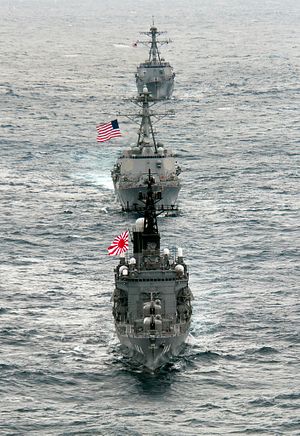In the 1970s, when Japan first sought to craft a foreign policy identity independent of the U.S., it turned to Southeast Asia. Though Japanese Prime Minister Tanaka Kakuei’s 1974 trip was greeted with protests, relations quickly improved with the 1977 promulgation of the Fukuda Doctrine, which promised that Japan would never again become a military power. Since then, Japan has been seen positively in Southeast Asia as a mentor and constructive partner.
However, despite this reservoir of soft power and major economic clout in the region, Japan has only been able to exercise marginal influence and has had difficulty being taken seriously. Part of the reason is that the U.S. remains the ultimate guarantor of security and stability in the region. And while the overall U.S. role will not change any time soon, regional dynamics are in flux as Japan develops a more robust foreign policy that seeks to promote Japanese interests and project influence abroad — starting in Southeast Asia, where disputes over islands in the South China Sea have attracted international attention.
Japan is interested in the South China Sea disputes gripping Southeast Asia for two main reasons. First, any tension in these waters could disrupt the free flow of traffic through critical sea lines, which are vital for resource-poor Japan’s economy and survival. Second, Japanese officials are closely monitoring how China handles these island disputes to try to discern how China might try to deal with Japan in their ongoing dispute over the Senkaku/Diaoyu Islands in the East China Sea.
The interconnectedness of these two issues is evident in the rife speculation that China might unilaterally declare an Air Defense Identification Zone in the South China Sea after it did so in the East China Sea in November 2013 (speculation which China has consistently denied). Such interconnectedness also leads to concerns that a negative outcome – a resolution of a dispute through the use or threat of the use of force – could set a precedent that affects other disputes. By supporting front-line states in the South China Sea, Japan sees itself as defending its own interests by upholding the norm of peaceful resolution, ironically, through military deterrence.
The U.S. would endorse a move in Japan’s security posture toward greater assertiveness and collaboration with Southeast Asian partners. Admiral Robert Thomas, commander of the Seventh Fleet, said in an interview to Reuters, “I think allies, partners and friends in the region will look to the Japanese more and more as a stabilizing function.” Adm. Thomas went as far as to imply an offshore balancer role for Japan, meaning that Japan would help forestall conflict by helping the weaker disputants “balance” China. Adm. Thomas said, “In the South China Sea, frankly, the Chinese fishing fleet, the Chinese coast guard and the (navy) overmatch their neighbors. … I think that JMSDF (Japan Maritime Self Defense Forces) operations in the South China Sea makes sense in the future.”
Since Adm. Thomas’ interview, Japan has responded that it would consider air and sea patrols in the South China Sea, though there are currently no such plans. Defense Minister Gen Nakatani told reporters, “The interdependence of nations is increasing and deepening, and the situation in the South China Sea affects our national security. The way our nation handles this will be an issue going forward.”
While hewing to the principle of Nakatani’s assurance that the South China Sea affects Japan’s national interests, Japan’s next steps will evolve very carefully. For the time being, Japan is most likely to remain focused on capacity-building, helping increase the capabilities of friendly states, such as the Philippines and Indonesia, to manage the disputes. Becoming more involved in the South China Sea issue would demonstrate Japan’s sincerity in sharing the regional security burden with the U.S. but would have negative repercussions for an already strained Sino-Japanese relationship. Capacity-building, not patrols, will define Japanese military engagement in Southeast Asia for the foreseeable future.

































